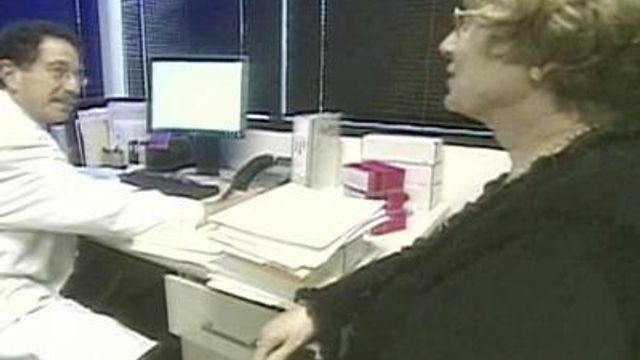RALEIGH, N.C. — Every year in this country, more than 300,000 people suffer hip fractures, and most of them happen to women.
They're painful, caring for their victims is costly, and they have a high death rate associated with them. A new study looked at ways of identifying women who are at the greatest risk so they can get preventive care.
A simple questionnaire can reveal a lot about a woman's health. The answers she gives may help 64-year-old Ginger Degregory learn about her risk of a hip fracture within the next five years.
“We have medications that work very well to prevent hip fractures, but they have side effects. They are expensive, so we don't want to use them in everybody,” said Dr. John Robbins of The University of California-Davis.
That's why Robbins and other researchers studied more than a 100,000 post-menopausal women to see what factors increased their risks of having a hip fracture.
The findings appear in the Journal of the American Medical Association.
“Clearly, the major factor is age and … the older you get, the more likely you are to have a fracture,” Robbins said.
There also are many other factors, including race. Caucasian women are at greater risk. So are women who are thin and tall, women who smoke, women who are physically inactive and women with diabetes or those who use corticosteroids medicines.
All those factors play a role, as well as a woman's perception of how good her health is.
The data are entered into a program to estimate risk.
Degregory’s answers indicated her probability of having a hip fracture in the next five years is less than one-half of 1 percent. If the news were not that good, though, she’d still want to know so she could take action.
“It's your body, and you have the responsibility to take care of it. Your doctor can give you the information you need to act on that information,” Degregory said.
Robbins said he wants to further test the set of risk factors to make sure they accurately predict hip fracture risk, but he does have advice about taking preventive medications.
"If your risk factor is 5 percent in the next five years," he said, "I would think it's probably worth taking them. If it's one-half of 1 percent, I would argue against it. Where you make that cut point in between is a difficult decision that's faced by women, physicians and society."





